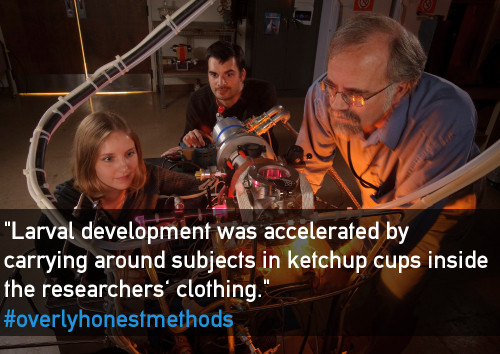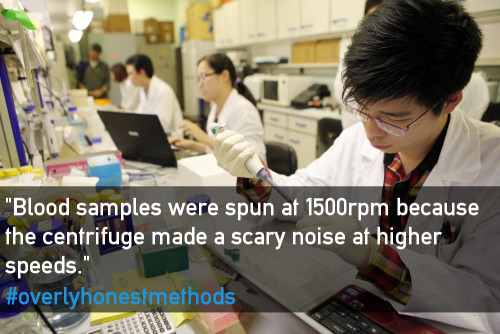Sleepysneezeydopeydoc-blog - Physics Nerd

More Posts from Sleepysneezeydopeydoc-blog and Others

😂😂












Blue Angels

I can relate to three out of four of them 🙃


If you put that ball on that machine while it wasn’t spinning, it would just roll straight down the lower sides.
The raised edges would keep it in the middle line, but it’s only controlled in one direction. By spinning it, you constantly alternate the position of the tall sides, meaning that the ball is held in the middle, never able to fall off.
Particle accelerators control particles in the same way. Magnetic or electric fields can only direct particles in one plane at a time, so to keep a beam of particles rushing down a particle accelerator in one focused stream, the current gradient must constantly oscillate. This means the particles are constantly held in place, never able to shoot off in one direction.

Here’s the same principle in action: these are tiny pollen grains being held in place by an oscillating field. Rods in the four corners of the beam establish a field that oscillates many times a second to keep the pollen trapped. If it didn’t constantly switch, the pollen would all fly off in one direction.
Watch the full film with Dr Suzie Sheehy for more.

🐧






{ insp. }








The Worlds of our Solar System

The wax worm, a caterpillar typically used for fishing bait and known for damaging beehives by eating their wax comb, has now been observed munching on a different material: plastic bags.
Scientist Federica Bertocchini of the Institute of Biomedicine and Biotechnology of Cantabria in Spain first noticed the wax worms’ plastic-eating skills when she was cleaning up a wax worm infestation in one of the beehives she keeps at home. She put the worms in a plastic bag, tied it closed, and put the bag in a room of her house while she finished cleaning the hive. When she returned to the room, “they were everywhere,” Bertocchini said in a statement. They’d escaped by chewing their way out of the bag, and fast.
“This project began there and then,” she said. In a paper published in Current Biology on Monday (April 24), Bertocchini and her colleagues described 100 wax worms chewing through a polyethylene shopping bag—the kind that people discard at a rate of 1 trillion per year globally—in around 40 minutes. After 12 hours, the bag was significantly shredded.
Continue Reading.
-
 scrisori-de-sertar liked this · 2 years ago
scrisori-de-sertar liked this · 2 years ago -
 live-love-hurt-forgive reblogged this · 4 years ago
live-love-hurt-forgive reblogged this · 4 years ago -
 lill-all liked this · 6 years ago
lill-all liked this · 6 years ago -
 swallowflyingsolo liked this · 6 years ago
swallowflyingsolo liked this · 6 years ago -
 superfan430 liked this · 6 years ago
superfan430 liked this · 6 years ago -
 peanutsvsbutter liked this · 6 years ago
peanutsvsbutter liked this · 6 years ago -
 sweet-devil-sweet liked this · 6 years ago
sweet-devil-sweet liked this · 6 years ago -
 hushbunnyy liked this · 6 years ago
hushbunnyy liked this · 6 years ago -
 autumnpleaves liked this · 6 years ago
autumnpleaves liked this · 6 years ago -
 theonewiththe-whales liked this · 6 years ago
theonewiththe-whales liked this · 6 years ago -
 phredman liked this · 6 years ago
phredman liked this · 6 years ago -
 shinyskeletondeannickel-blog liked this · 7 years ago
shinyskeletondeannickel-blog liked this · 7 years ago -
 ex-libris-regina-angela reblogged this · 7 years ago
ex-libris-regina-angela reblogged this · 7 years ago -
 viik-lhl liked this · 7 years ago
viik-lhl liked this · 7 years ago -
 followdanielhowellbutnotascool liked this · 7 years ago
followdanielhowellbutnotascool liked this · 7 years ago -
 hatingumbridgewithallmyheart liked this · 8 years ago
hatingumbridgewithallmyheart liked this · 8 years ago -
 sleepysneezeydopeydoc-blog reblogged this · 8 years ago
sleepysneezeydopeydoc-blog reblogged this · 8 years ago -
 sleepysneezeydopeydoc-blog liked this · 8 years ago
sleepysneezeydopeydoc-blog liked this · 8 years ago -
 demonic-pancakes liked this · 8 years ago
demonic-pancakes liked this · 8 years ago -
 earthtofatma liked this · 8 years ago
earthtofatma liked this · 8 years ago -
 taliiiin liked this · 8 years ago
taliiiin liked this · 8 years ago -
 that-demon-named-dustin liked this · 8 years ago
that-demon-named-dustin liked this · 8 years ago -
 lone-swingset reblogged this · 8 years ago
lone-swingset reblogged this · 8 years ago -
 lone-swingset liked this · 8 years ago
lone-swingset liked this · 8 years ago -
 nimishiki liked this · 8 years ago
nimishiki liked this · 8 years ago -
 heresmytale liked this · 8 years ago
heresmytale liked this · 8 years ago -
 wip--work-in-progress liked this · 8 years ago
wip--work-in-progress liked this · 8 years ago -
 just-a-tiny-beast liked this · 8 years ago
just-a-tiny-beast liked this · 8 years ago -
 6purplescissors reblogged this · 8 years ago
6purplescissors reblogged this · 8 years ago -
 6purplescissors liked this · 8 years ago
6purplescissors liked this · 8 years ago -
 teodorovna liked this · 8 years ago
teodorovna liked this · 8 years ago -
 captainsugaraddict reblogged this · 8 years ago
captainsugaraddict reblogged this · 8 years ago -
 itsaraptor liked this · 8 years ago
itsaraptor liked this · 8 years ago -
 spacelea liked this · 8 years ago
spacelea liked this · 8 years ago -
 vrszvla1 liked this · 8 years ago
vrszvla1 liked this · 8 years ago -
 fish-and-fists liked this · 8 years ago
fish-and-fists liked this · 8 years ago -
 emixamevol liked this · 8 years ago
emixamevol liked this · 8 years ago -
 niedierichtigenworte liked this · 8 years ago
niedierichtigenworte liked this · 8 years ago -
 hellaqueerengineer reblogged this · 8 years ago
hellaqueerengineer reblogged this · 8 years ago -
 idratherbe liked this · 8 years ago
idratherbe liked this · 8 years ago -
 thedcuevasadd liked this · 8 years ago
thedcuevasadd liked this · 8 years ago -
 eventheimpossible liked this · 8 years ago
eventheimpossible liked this · 8 years ago -
 derreflex liked this · 8 years ago
derreflex liked this · 8 years ago